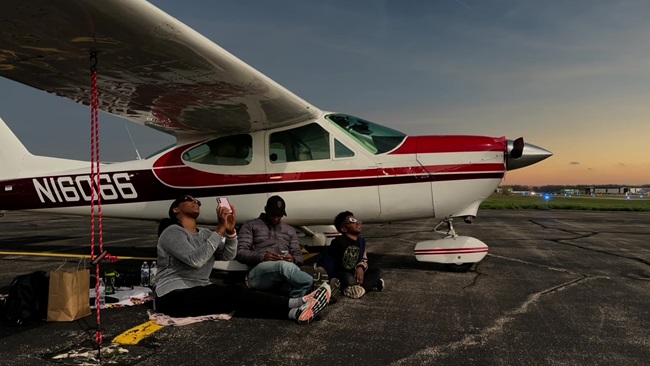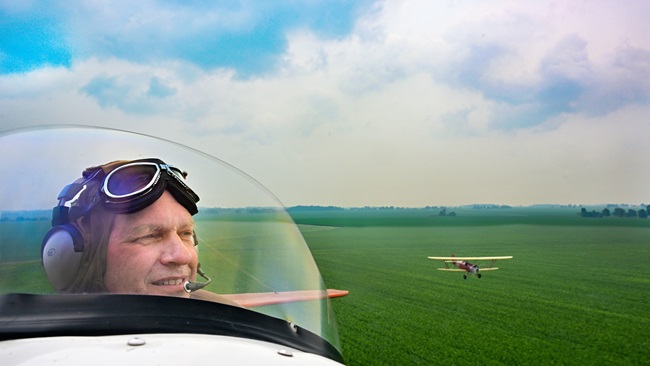Rugged Nomad solar panel charges phones
Pilots, travelers, and outdoor enthusiasts rely more and more on electronic devices to keep them safe, secure, and informed; but things can go south in a hurry when the juice runs low. The rugged, waterproof $99.95 Nomad 7 Plus Solar Panel is about the size of an iPad Mini when folded and combats the problem by providing enough power to keep modern devices charged.
A user can flop open the solar panels similar to opening the covers of a book, then connect devices directly for immediate relief, or charge an external battery and transfer the power to other devices when convenient.
The solar panel is manufactured by GoalZero. I purchased the Nomad 7 Plus from a brick-and-mortar outdoor retailer and field-tested the solar panel by charging an iPhone 7 Plus and an external battery, while covering Hurricane Irma relief efforts for AOPA.
Of course, a properly working 12-volt automobile or aircraft power port is a handy first option. However, during the course of a week crisscrossing Florida, there were times when neither was available. There also were instances when flying to distant destinations required two phones and an electronic flight bag—with all requiring charges at about the same time.
The Nomad 7 Plus solar panel was extremely helpful in communities that were wrecked by the hurricane and lacked a power grid. With a clear view of the sun, the device’s monocrystalline solar panel converted Florida sunshine into battery-boosting energy in a slow but steady manner that charged a cellphone. The cellphone also charged while talking on it at the same time.
A solar intensity reader illuminated from one to four blue lights, depending on the sun's strength and the orientation of the panel. The lights cue users to position the panel for maximum efficiency, taking much of the guesswork out of proper positioning. An included kick stand with a handy pouch can stabilize the device as it’s pointed up toward the sun at a 45-degree angle. The pouch is large enough to cradle a mammoth iPhone 7 Plus and a charging cord. It worked perfectly from its perch on a parked Cessna 182’s horizontal stabilizer.
The solar panel converts energy into 7 watts of power at an output of 1 amp using an “intelligent USB” charging system. Lights on a USB dongle flash at the speed with which the attached device is charging, so there are visual clues if power is drained faster than it’s replenished. A couple of small carabiners clip into corners of the solar panel so the device may be attached to a backpack for journeys into the wilderness, or positioned over an aircraft seatback.
The charging panel easily folds out flat on an aircraft’s glareshield or a hat rack. During daylight conditions in Florida, it could power a cellphone, an external battery pack, or a portable Automatic Dependent Surveillance-Broadcast (ADS-B) receiver, depending on that device’s power consumption requirements and usage. However, when I returned to Maryland's higher latitude it had a hard time keeping up with the power demands of an iPad Mini. When not in use, the two solar panels fold closed like a thin book and the small charging cable stashes inside the pouch for security.
An unexpected benefit of the Nomad 7 Plus is that it can be packed inside checked luggage because it doesn’t have a lithium battery attached to it. For users with more varied solar power needs, the GoalZero company’s catalog offers a variety of earth-friendly devices including permanent solar panels, more powerful portable solar panels, power packs, generators, and lighting options.




